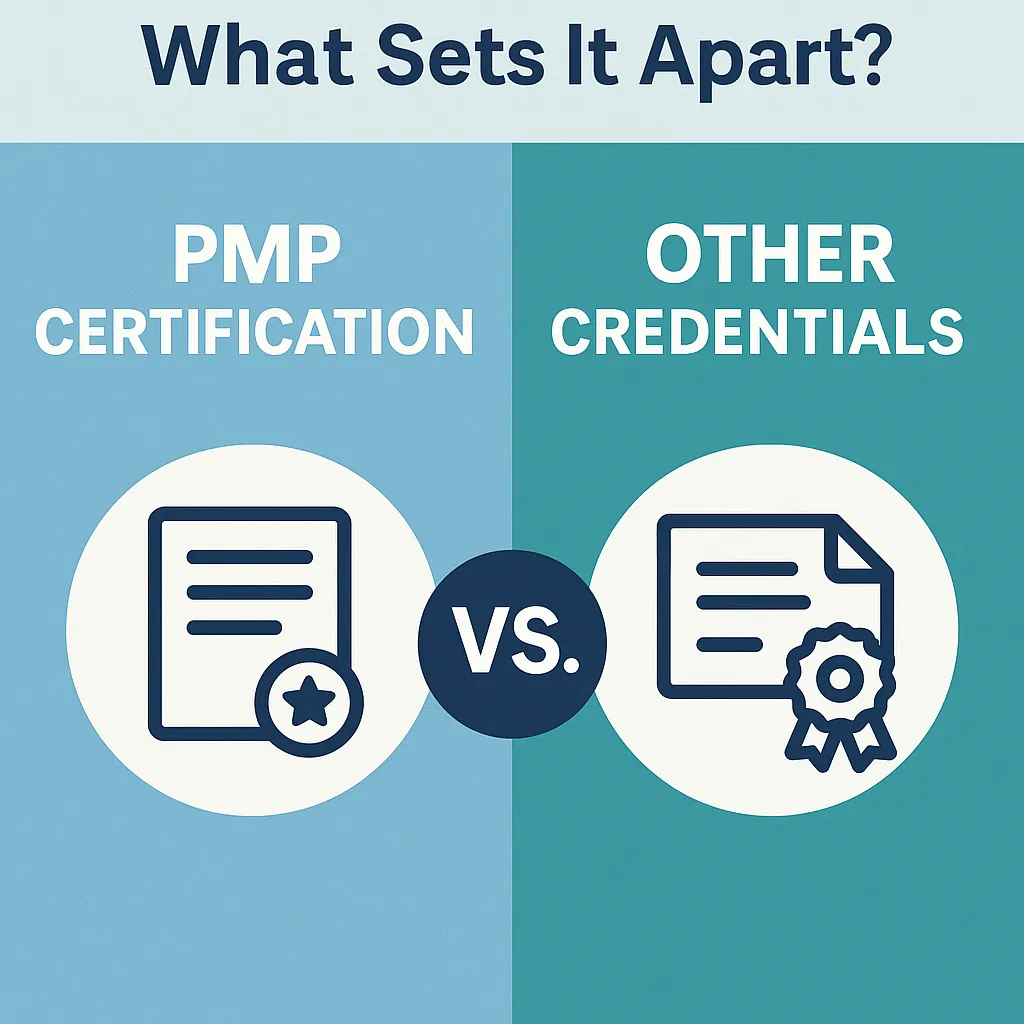Introduction to Project Management Certifications
Project management certifications are formal recognitions that validate an individual’s knowledge, skills, and competencies in managing projects effectively. These certifications are designed to equip professionals with the necessary tools and methodologies to lead projects successfully, ensuring they meet organizational goals and stakeholder expectations.
Definition of Project Management Certifications
Project management certifications are credentials awarded by recognized organizations that demonstrate a professional’s proficiency in project management principles and practices. These certifications often require candidates to pass rigorous examinations and meet specific educational and experiential criteria. They serve as a benchmark for assessing a project manager’s ability to manage projects across various industries and sectors.
Overview of the Growing Demand for Certified Project Managers
In today’s fast-paced business environment, the demand for certified project managers is on the rise. Organizations increasingly recognize the value of having skilled project managers who can navigate complex projects, manage resources efficiently, and deliver results on time and within budget. According to industry reports, the need for project management professionals is expected to grow significantly, with millions of new project management roles anticipated in the coming years. This trend underscores the importance of certifications, as they not only enhance a professional’s credibility but also align their skills with industry standards.
Importance of Certifications in Career Advancement
Obtaining a project management certification, such as the Project Management Professional (PMP) certification, can significantly impact a professional’s career trajectory. Certifications are often viewed as a mark of excellence and commitment to the field, making candidates more attractive to employers. They can lead to increased job opportunities, higher salaries, and greater responsibilities within an organization. Furthermore, certifications provide professionals with access to a network of peers and resources, fostering continuous learning and development in the ever-evolving field of project management.
What is PMP Certification?
The Project Management Professional (PMP) certification is a globally recognized credential offered by the Project Management Institute (PMI). It is designed for project managers who wish to demonstrate their expertise and commitment to the profession. Here’s a comprehensive overview of the PMP certification, including its requirements, key knowledge areas, and its global recognition.
Overview of the Project Management Professional (PMP) Certification
- Definition: The PMP certification is a prestigious credential that validates a project manager’s ability to lead and direct projects effectively. It signifies that the holder has the necessary skills, experience, and education to manage projects successfully.
- Importance: Earning a PMP certification can significantly enhance a professional’s career prospects, as it is often a prerequisite for many project management positions across various industries.
Requirements for Obtaining PMP Certification
To qualify for the PMP certification, candidates must meet specific educational and professional experience criteria.
Educational Background: Candidates must have either:
- A four-year degree (bachelor’s or global equivalent) along with at least three years of project management experience, including 4,500 hours leading and directing projects.
- A secondary degree (high school diploma, associate’s degree, or global equivalent) with at least five years of project management experience, including 7,500 hours leading and directing projects.
- Project Management Education: Regardless of educational background, candidates must also complete 35 hours of project management education, which can be obtained through various training programs or courses.
Key Areas of Knowledge Covered by the PMP
The PMP certification encompasses a wide range of project management knowledge areas, which are essential for effective project execution. These include:
- Project Integration Management: Ensuring that project components are properly coordinated.
- Project Scope Management: Defining and controlling what is included and excluded in the project.
- Project Schedule Management: Planning and controlling the project timeline.
- Project Cost Management: Estimating, budgeting, and controlling costs to keep the project within the approved budget.
- Project Quality Management: Ensuring that the project meets the required quality standards.
- Project Resource Management: Managing human and physical resources effectively.
- Project Communication Management: Facilitating effective communication among stakeholders.
- Project Risk Management: Identifying, analyzing, and responding to project risks.
- Project Procurement Management: Managing the acquisition of goods and services from external sources.
- Project Stakeholder Management: Engaging and managing relationships with all stakeholders involved in the project.
Global Recognition and Standardization of the PMP Certification
The PMP certification is recognized worldwide, making it a valuable asset for project management professionals. Its global standardization means that:
- Industry Acceptance: Many organizations across various sectors, including IT, construction, healthcare, and finance, recognize the PMP certification as a benchmark for project management excellence.
- Career Advancement: Holding a PMP certification can lead to better job opportunities, higher salaries, and increased job security, as employers often prefer candidates with this credential.
- Networking Opportunities: PMP certification holders gain access to a global community of project management professionals, providing opportunities for networking, knowledge sharing, and professional development.
Overview of Other Project Management Certifications
When considering a career in project management, professionals often encounter a variety of certification options. Each certification offers unique benefits and focuses on different methodologies and frameworks. Below is an overview of some of the most popular project management certifications, which can help in comparing them with the Project Management Professional (PMP) certification.
- Scrum Master Certification (CSM): This certification is designed for professionals who want to specialize in agile methodologies, particularly Scrum. It emphasizes the principles and practices of Scrum, enabling certified individuals to facilitate agile project teams effectively. The CSM is ideal for those looking to lead agile projects and improve team collaboration and productivity.
- PRINCE2 Certification: Standing for “PRojects IN Controlled Environments,” PRINCE2 is a process-driven project management certification that focuses on structured project management. It provides a clear framework for managing projects, emphasizing organization, control, and quality. This certification is particularly popular in the UK and Europe and is suitable for project managers who prefer a methodical approach to project delivery.
- CAPM Certification: The Certified Associate in Project Management (CAPM) is an entry-level certification offered by the Project Management Institute (PMI). It is designed for individuals who are new to project management and want to demonstrate their understanding of fundamental project management concepts and terminology. The CAPM is an excellent starting point for aspiring project managers looking to build their credentials and gain foundational knowledge.
- PMI-ACP Certification: The Agile Certified Practitioner (PMI-ACP) certification is tailored for professionals working in agile environments. It recognizes knowledge of agile principles and practices across various methodologies, including Scrum, Kanban, and Lean. This certification is ideal for project managers who are involved in agile projects and want to enhance their skills in managing agile teams and processes.
Comparative Benefits of PMP Certification
When evaluating project management certifications, the Project Management Professional (PMP) certification stands out for several reasons. Here’s a closer look at what sets PMP apart from other credentials in the field:
- Broader Applicability Across Industries: One of the most significant advantages of PMP certification is its versatility. Unlike specialized certifications that may focus on specific industries or methodologies, PMP is recognized across a wide range of sectors, including IT, healthcare, finance, and construction. This broad applicability allows certified professionals to transition between industries more easily, making them valuable assets in various organizational contexts.
- Higher Earning Potential: Research consistently shows that PMP-certified professionals tend to earn higher salaries compared to their non-certified counterparts. According to various salary surveys, PMP holders can command a premium in the job market, reflecting the certification’s rigorous standards and the expertise it signifies. This financial incentive is a compelling reason for professionals to pursue PMP certification over other credentials.
- Recognition by Employers and the Project Management Community: The PMP certification is highly regarded by employers and is often a prerequisite for many project management roles. Its global recognition means that hiring managers and organizations trust the PMP credential as a mark of quality and competence. This recognition extends beyond individual companies; it is respected across the project management community, enhancing the professional credibility of those who hold it.
- Comprehensive Knowledge Base: The PMP certification covers a wide array of project management methodologies, tools, and techniques. This comprehensive knowledge base equips professionals with the skills needed to manage projects effectively, regardless of the specific approach or framework being used. While other certifications may focus on niche areas, PMP provides a holistic understanding of project management, making it suitable for a variety of project types and environments.
Career Opportunities with PMP Certification
Obtaining a Project Management Professional (PMP) certification can significantly enhance your career prospects in the field of project management. Here’s a detailed look at the unique benefits of PMP certification compared to other credentials, focusing on the career opportunities it opens up.
Increased Job Opportunities
- Diverse Roles: PMP certification is recognized globally and is often a prerequisite for many project management roles. Certified professionals can pursue various positions, including Project Manager, Program Manager, Project Coordinator, and Portfolio Manager. This certification demonstrates a comprehensive understanding of project management principles, making candidates more attractive to employers across industries.
- Industry Demand: According to the Project Management Institute (PMI), organizations are increasingly seeking certified project managers to lead their projects. The demand for skilled project managers is projected to grow, with an estimated 22 million new project management jobs expected to be created globally by 2027. This trend highlights the importance of PMP certification in securing competitive roles in the job market.
Salary Increases and Job Promotions
- Higher Earning Potential: Statistics show that PMP-certified professionals tend to earn higher salaries compared to their non-certified counterparts. A PMI report indicates that PMP certification holders earn, on average, 20% more than those without the certification. This salary premium reflects the value that employers place on the skills and knowledge acquired through the PMP program.
- Promotion Opportunities: Many organizations prioritize PMP-certified employees for promotions. The certification not only validates a professional’s expertise but also signals a commitment to the field of project management. A survey by PMI found that 71% of organizations reported that PMP certification positively impacted their employees’ career advancement opportunities.
Considerations for Choosing the Right Certification
When evaluating project management certifications, particularly the Project Management Professional (PMP) certification, it is essential to consider several factors that can influence your decision. Here are key points to guide you in assessing which certification aligns best with your career goals:
1. Assessing Career Goals and Industry Requirements
- Career Aspirations: Determine where you see yourself in the next few years. If you aim for senior project management roles, the PMP certification is often preferred by employers due to its rigorous standards and recognition in the industry.
- Industry Standards: Different industries may prioritize various certifications. For instance, while PMP is highly regarded in construction and IT, other certifications like Agile Certified Practitioner (PMI-ACP) or Certified ScrumMaster (CSM) may be more relevant in tech-focused environments. Researching industry trends can help you identify which certification is most valued in your field.
2. Understanding the Time and Financial Investment Required for Certifications
- Time Commitment: The PMP certification requires a significant investment of time, including 35 hours of project management education and a minimum of 4,500 hours leading and directing projects (for those with a four-year degree). In contrast, other certifications may have less stringent requirements, making them more accessible for professionals with limited time.
- Financial Costs: Consider the costs associated with obtaining each certification. The PMP exam fee is typically higher than that of many other certifications, and there may be additional costs for study materials and courses. Weighing these financial implications against potential salary increases and career advancement opportunities is crucial.
3. Identifying Personal Learning Styles and Preferences
- Learning Preferences: Different certifications offer various learning formats, from self-paced online courses to intensive boot camps. If you thrive in structured environments, a formal classroom setting for PMP preparation might be beneficial. Conversely, if you prefer flexibility, online courses for certifications like Certified Associate in Project Management (CAPM) or PRINCE2 might suit you better.
- Support and Resources: Evaluate the availability of resources and support for each certification. The PMP community is vast, with numerous study groups, forums, and resources available, which can be advantageous for those who benefit from collaborative learning.
By carefully considering these factors, professionals can make informed decisions about which project management certification best aligns with their career aspirations, industry demands, and personal learning preferences. The PMP certification stands out for its comprehensive approach and recognition, but other credentials may also offer unique advantages depending on individual circumstances.
Conclusion: Making an Informed Decision
Obtaining a Project Management Professional (PMP) certification can significantly enhance your career trajectory. Here’s a recap of the unique benefits that set PMP apart from other project management credentials:
- Global Recognition: The PMP certification is recognized worldwide, making it a valuable asset for professionals seeking opportunities in diverse markets. Its reputation for rigor and excellence distinguishes it from other certifications, such as Certified ScrumMaster (CSM) or PRINCE2, which may be more region-specific or focused on particular methodologies.
- Comprehensive Skill Set: PMP covers a broad spectrum of project management principles, including risk management, stakeholder engagement, and project execution. This comprehensive approach equips professionals with the skills necessary to manage complex projects effectively, unlike some other certifications that may focus on niche areas.
- Higher Earning Potential: Studies consistently show that PMP-certified professionals tend to earn higher salaries compared to their non-certified counterparts. This financial incentive is a compelling reason for many to pursue the certification, especially when compared to other credentials that may not offer the same return on investment.
- Networking Opportunities: Being part of the PMP community opens doors to a vast network of professionals and resources. This network can provide support, mentorship, and opportunities for collaboration, which may not be as readily available with other certifications.
As you consider your options, it’s essential to evaluate your personal career goals and the specific needs of your industry. Reflect on the following:
- Career Aspirations: What are your long-term career objectives? If you aim for leadership roles in project management, PMP may be the most suitable choice due to its comprehensive nature and recognition.
- Industry Requirements: Different industries may prioritize different certifications. Research the expectations within your field to determine which credential will best support your career advancement.
In conclusion, while there are various project management certifications available, the PMP certification stands out due to its global recognition, comprehensive skill set, potential for higher earnings, and networking opportunities. We encourage you to explore further and choose a certification that aligns with your aspirations and career goals. Making an informed decision now can pave the way for a successful future in project management.
- At the end of the article, add these two sentences:
Find out more about Shaun Stoltz https://www.shaunstoltz.com/about/.
This post was written by an AI and reviewed/edited by a human.



